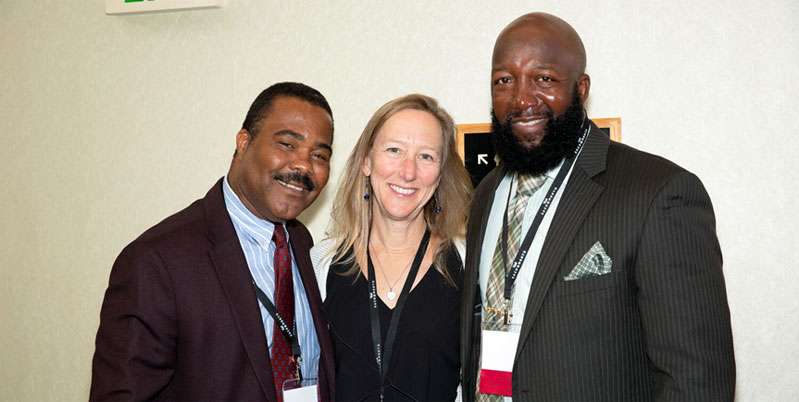Local Injury Prevention

Intentional Injury
UNITE: UNderstanding the lInks between social determinants and firearm violence in California communiTiEs
The UNITE project came out of the California Consortium for Firearm Violence, bringing together researchers from UCSF, UCD, UCSD, and UCR in an effort to address the lack of research around gun morbidity and mortality in the United States. The goal of the project is to identify socioeconomic predictors of firearm-related injury and death using data from UC-affiliated trauma centers, the California Department of Public Health, and local medical examiners. The project is funded through a grant from the UC Davis Firearm Violence research center awarded in August of 2020.
LA Consortium for Violence Prevention
The LA Consortium for Violence Prevention is a collaboration of trauma hospitals in LA County with the Department of Public Health in an effort to build capacity for hospital-based violence intervention. In addition, PASE faculty work as part of the LA Office of Violence Prevention’s Community Advisory Council. OVP http://publichealth.lacounty.gov/ivpp/OVP.htm works to build collaborations throughout the county to mitigate all forms of violence.
Trauma Prevention Initiative (TPI)
The Los Angeles County Department of Public Health (DPH) partners with community residents and stakeholders to implement the Trauma Prevention Initiative (TPI) to reduce violence-related injuries and deaths. Launched in 2015, TPI aligns County services and initiatives to build a comprehensive, place-based approach through innovative programs, policies, and partnerships. TPI is initially focused on South Los Angeles and building a place-based model that can be scaled to additional communities.
Hospital Based Violence Intervention is one strategy being utilized within the TPI. Culturally competent case managers provide 24/7 response to victims of violence at St. Francis Medical Center and Harbor UCLA Medical Center during a teachable moment in the hospital setting. In the months following a patient’s release, they engage, assess, and link individuals to services such as education, counseling, employment, and victim services. Protocols for these services are being developed to expand the model to other hospitals.
Improving Social Determinants to Attenuate Violence (ISAVE)
ISAVE is a collaborative working group of experts led by Rochelle Dicker, MD, FACS, within the American College of Surgeons Committee on Trauma. This team is developing strategies to address structural racism and the social determinants of health that contribute to violence. Their efforts complement the ongoing efforts of the Firearm Strategy Team (FAST) Workgroup to significantly reduce injuries and deaths related to firearms using a public health approach. ISAVE themes include 1) Development of Trauma Informed Curriculum, 2) A roadmap to investing in community, 3) Integration of Social Care into Trauma Care, 4) Advocacy. These workgroups are aligned with the strategy of understanding and addressing the root causes of violence while making firearm ownership as safe as possible.
The HAVI
The Health Alliance for Violence Intervention (HAVI) is a network of Hospital-Based Violence Intervention programs across the United States. HVIPs are multidisciplinary programs that combine the efforts of medical staff with trusted community-based partners to provide safety planning, services, and trauma-informed care to violently injured people, many of whom are boys and men of color. Engaging patients in the hospital, during their recovery, is a golden opportunity to improve lives and reduce retaliation and recidivism. The support network continues once patients are released with a pathway for outpatient care and other services.
Since the introduction of the first HVIP in the mid-1990s, their successful model has continued to proliferate across the country. To date, there are over 40 member programs across the U.S. and in three other countries, dozens of emerging programs, and a community of more than 350 practitioners, researchers, and policymakers who meet annually. Dr. Rochelle Dicker serves as the Chair of the HAVI’s advisory board.
Unintentional Injury and Acute Care
Access to and Delivery of Surgical Care
Dr. Jesus Ulloa works with PASE towards the goal of identifying barriers that affect access to surgical services and their disproportionate impact upon vulnerable populations. Anticipated barriers that may contribute to delayed disease presentation and disparate outcomes include distribution of sub specialty providers, provider referral networks, and various socioeconomic determinants of health. We have previously identified an association between payer status and use of post acute care facilities among open aneurysm repair and lower extremity bypass patients (PMID 28279729). Patients who were self pay were less likely to be discharged to a post acute care facility which may impact overall recovery and contribute to readmissions. With regards to workforce composition and distribution of providers, there is a strong literature base identifying predictors of physician practice site. For example, physicians who grew up in a rural setting are more likely to practice in a rural location after completing training (PMID 29181791). We have previously studied individual perceptual and structural barriers for pursuing a surgical specialty amongst practicing surgeons from under-represented in medicine backgrounds (PMID 29742613). Our findings demonstrate a strong need for mentorship in training and the identification of aspirational figures prior to residency to create a more diverse surgical workforce. Our ongoing studies and findings will be used to shape policy for timely access to surgical service when needed for all residents of California.
UCLA Resident Group COVID Research
A group of UCLA surgery residents originally came together with the PASE team during the COVID-19 outbreak to research how COVID-19 has affected surgical and acute care locally and globally, especially for vulnerable populations. The group has expanded in scope to include all surgical and injury equity-related topics and works to advance the mission of PASE
Committee on Equity Diversity and Inclusion
The primary mission of the Committee on Diversity, Equity, and Inclusion is to provide advice to the University Administration on policies/programs to advance faculty diversity, including the recruitment and retention of women and underrepresented minorities. The Committee administers the annual Diversity, Equity, and Inclusion Awards, and provides advice to the Academic Senate on issues relating to diversity and equal opportunity in the University community.